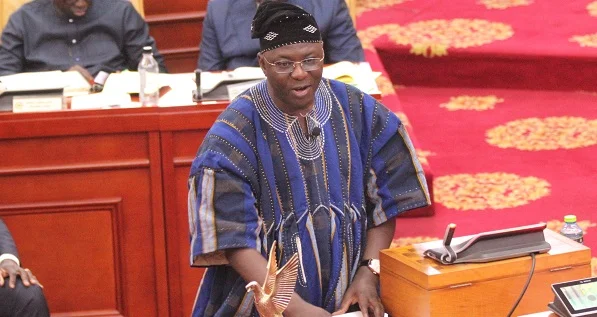The Ghanaian Parliament has received the Expenditure in Advance of Appropriation, often referred to as the mini-budget, for the first quarter of 2025, covering the period from January to March. Submitted by the Minister of Finance, Dr. Mohammed Amin Adam, the proposed budget totals GH¢68.1 billion and is designed to ensure uninterrupted government operations during the transition period leading up to the formation of a new administration following the December 2024 elections. This interim funding mechanism is constitutionally mandated to bridge the fiscal gap before the incoming government presents its full budget for the remainder of the year. The mini-budget allows for the continuation of essential services and prevents disruptions in crucial governmental functions.
The allocated funds within the GH¢68.1 billion mini-budget will primarily address critical areas of government expenditure. A significant portion will be dedicated to covering the salaries of public sector workers, ensuring timely payment and maintaining stability within the public workforce. Statutory payments, representing legally obligated expenditures, will also be covered by the appropriation, upholding the government’s financial commitments. Additionally, the mini-budget allocates resources for the continued maintenance of essential infrastructure projects, preventing deterioration and ensuring the ongoing functionality of vital public assets. Funding for social intervention programs is also included within the allocation, safeguarding the continuity of initiatives designed to support vulnerable populations and promote social welfare.
The submission of the mini-budget signifies a critical step in the fiscal transition process, ensuring a smooth handover of power and preventing interruptions in essential government services. Following its submission, Second Deputy Speaker Andrew Asiamah Amoako referred the document to the parliamentary Budget and Finance Committees for thorough review and scrutiny. These committees play a vital role in the budget approval process, meticulously examining the proposed expenditures and underlying policies to ensure fiscal responsibility and alignment with national priorities. Their detailed analysis will form the basis for subsequent deliberations and debate within the full Parliament.
The Budget and Finance Committees are expected to conduct comprehensive assessments of the mini-budget’s provisions, examining the justifications for the proposed allocations and ensuring their appropriateness and effectiveness. This rigorous review process will involve detailed analysis of expenditure projections, revenue forecasts, and the potential impact of the allocated funds on the broader economy. The committees will also consider the alignment of the proposed expenditures with existing government policies and development objectives, ensuring consistency and coherence in fiscal planning. Their findings and recommendations will be compiled into a report to be presented back to the Parliament for further discussion and consideration.
Parliament has scheduled a reconvening session on January 2, 2025, specifically to address the mini-budget. During this session, the Minister of Finance will formally present the budget to the assembled members, outlining the key allocations and providing further justification for the proposed expenditures. Following the presentation, Members of Parliament will engage in extensive deliberations and discussions, scrutinizing the budget’s details and debating its merits. This process allows for robust debate and ensures accountability in the allocation of public funds. The parliamentary discussions will culminate in a vote to approve or reject the proposed mini-budget, setting the stage for government operations during the first quarter of 2025.
The timely submission and review of the mini-budget demonstrate the government’s commitment to fiscal responsibility and ensuring the continuity of essential services during the transition period. This crucial interim measure allows for the uninterrupted functioning of government operations while awaiting the formation of the new administration and the presentation of a full annual budget. The rigorous scrutiny by the parliamentary committees and the subsequent debates within the full Parliament reinforce the principles of transparency and accountability in the management of public finances. The outcome of this process will significantly impact the government’s ability to operate effectively and deliver vital services to the citizens of Ghana during the early months of 2025.














